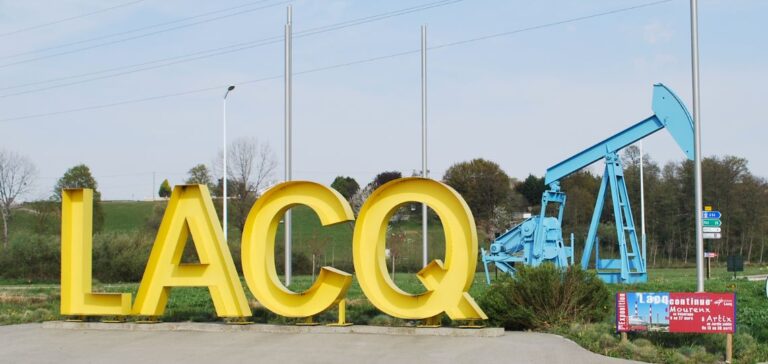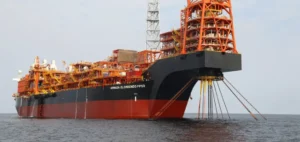For 60 years, it was the largest natural gas deposit exploited in France: at the foot of the Pyrenees, the Lacq industrial site is now focusing on renewable energies, an accelerated greening that does not convince environmental associations.
Although the gas is no longer exploited commercially, it is still extracted for industrial use: Arkéma, the largest employer in the industrial basin with some 750 employees, exploits hydrogen sulfide (H2S), which is highly toxic and corrosive. The rest, “clean” gas, is used to supply energy to local sites.
The peak production of the deposit, exploited from 1951 to 2013, was reached in 1982. Since 2010, the source is slowly being depleted.
“We were aiming for the 2060s for the end, but today we know that we will be able to go a little further because we are drawing a smaller gas net than expected,” explains Patrice Bernos, general manager of the ChemParc public interest grouping, dedicated to the development of the complex.
Lacq benefited from an exemption to the law that ended hydrocarbon exploration and exploitation in France in 2017.
At the height of the operation, 8,500 employees were directly dependent on the deposit. There are still 7,500 of them today, representing 24% of local employment.
Patrice Laurent, mayor (DVG) of Mourenx and president of the Lacq-Orthez community of municipalities, is campaigning for the exploitation of this gas pocket in the context of the global energy crisis. “We won’t be able to do without carbon-based energy overnight. Right now, it’s right under our feet, we just have to take it and use it.”
Lacq, a “pioneer territory”, must attract newcomers, agrees David Habib, socialist deputy for the district.
In September, elected officials announced that Lyon-based Elyse Energy would invest €350 million in a “green” methanol manufacturing site that will recover CO2 emitted by local industries, with 110 jobs created on paper.
“We bring a solution to emitters and we focus on (…) the unavoidable carbon, with no alternative,” explains Benoît Decourt, director of operations of this SME.
“Acceptability.”
At the end of 2021, a photovoltaic power plant, financed by TotalEnergies, came into service in Lacq. The French giant has also bought a methanizer for biogas production, launched in August.
“We have all collectively succeeded in the conversion”, Thierry Renard, the group’s representative in Pau, told the daily La République des Pyrénées on Wednesday.
The environmental associations that have been monitoring the discharges and emissions from the Lacq plants for years remain skeptical.
“Instead of solving the problem of existing pollution and emission thresholds that are not respected, we are told that we will bring in companies that are greener than the others, while continuing the exploitation of gas and its derivatives,” says Cathy Soublès for the Sepanso64, affiliated with France Nature Environnement.
In 2018, the prefecture had shut down a Sanofi production site in Mourenx, after a report from this association.
Emissions of bromopropane, which is a component of sodium valproate, the active ingredient in the anti-epileptic drug Depakine, were well above the authorized thresholds.
“The Sanofi case, once revealed, was resolved in four months”, points out Cathy Soublès, convinced that “industrialists know how to solve problems once they are up against the wall”. A judicial investigation has been opened for endangering others and obstructing an authorized agent.
The employees of these large sites are also concerned. “We are the first to be exposed to carcinogenic, mutagenic and reprotoxic agents,” emphasizes Timothée Esprit, CGT representative.
“The companies are hyper fliated by the Dreal (Regional Directorate of Environment, Development and Housing), by the complaints and the pressure put by the Sepanso”, answers Patrice Bernos, for whom the degree of “acceptability” of the population has changed.
“The industrial risk was much higher before, but the disadvantages of the industry are less borne today,” considers ChemParc’s general manager.





















